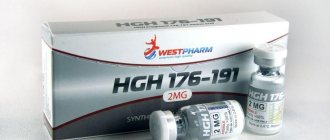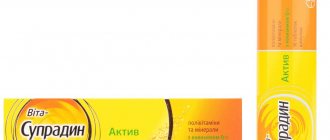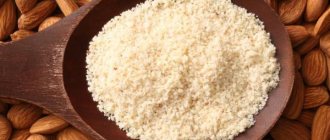To build muscle mass, you need regular training and a nutritious diet that provides the body with nutrients. And if for the first condition it is enough to sign up for a gym or buy exercise equipment for your home, then fulfilling the second condition is more difficult. You need to create a diet that includes a large amount of easily digestible protein, plus vitamins and minerals. If nutrition is inadequate, the recovery of the body, muscle growth will slow down and health will worsen. To eliminate these unpleasant moments, reinforcement in the form of special additives is required. This is a sports nutrition for gaining muscle mass, including protein, amino acids, vitamins and other additives.
What is sports nutrition, benefits and harms
Sports nutrition is a complex of nutritional supplements, the intake of which promotes rapid recovery after training. The composition includes nutrients important for the body: proteins, carbohydrates, vitamins, minerals and amino acids.
Many people believe that eating to gain weight does more harm than good. In fact, this opinion is wrong. If you follow the dosage and exercise regularly, supplements will help make noticeable changes:
- endurance will increase;
- sleep will improve;
- Metabolism will speed up, triggering the process of losing weight;
- weight is normalized;
- your well-being and mood will improve.
Harm from supplements is possible only if the dosage is not observed and taken if there are contraindications.
What else you need to know about taking sports nutrition:
- High-quality sports nutrition has nothing to do with prohibited anabolic steroids, which accelerate weight growth, but cause addiction and destroy the body from the inside.
- At its core, sports nutrition is ordinary products, only they contain useful substances in balanced quantities. For example, to build muscle mass, you need to eat 200 grams of chicken breast or drink 300 ml of a protein shake after training. It is not always possible to eat a full meal, but protein intake after training is mandatory.
- Sports nutrition works only in combination with physical activity. You can take amino acids and protein for therapeutic purposes, but there will be no muscle growth. To make muscles grow, you need to traumatize the muscle tissue and then give it time to recover. Therefore, a beautiful, muscular body is possible only if you follow a training and rest regime.
- It is better to select sports nutrition with a trainer and after consultation with a doctor. Despite the small number of contraindications, taking the supplement is possible only if there are no contraindications. The trainer will help you choose nutrition and dosage depending on your goal and level of physical fitness.
What are sports supplements?
Modern professional sports are unthinkable without special nutrition; not a single athlete can achieve high results by eating only ordinary food. It is special sports supplements that help the athlete’s body primarily recover after exhausting training. Sports supplements are specially developed drugs for people actively involved in sports. These supplements are aimed at improving athletic performance, increasing endurance and strength, and as a result, losing excess weight and improving well-being.
Such supplements can contain vitamins, minerals, amino acids, herbal extracts - in any concentrations and combinations of several substances. Various sports supplements help the body function to one degree or another: speed up metabolism, give energy and strength. Taking sports supplements is necessary if a person’s energy expenditure is much greater than the calorie intake. Supplements supply energy in its pure form, so it is easier for the body to absorb it and nothing unnecessary is stored. Sports supplements are absolutely legal, usually sold in fitness clubs or specialty stores and do not require a prescription.
Can sports nutrition be harmful?
It's no secret that sports nutrition has had a bad reputation in our country for many years. The main reason is that completely harmless natural supplements were confused with hormonal drugs, which could well give a similar effect. Despite the fact that hormones are not milkshakes, but come in the form of ampoules or tablets, fears were strong.
However, over the years, as sports nutrition became widely available and sports literacy increased, ignorance began to recede. But does this mean that sports nutrition is completely safe and harmless? Not so simple.
Sports nutrition is a natural supplement made from regular foods. If you choose a high-quality product that has not expired, then it cannot cause any more harm than regular food. It would seem that the question is closed? One “but” prevents us from putting a bold point.
Regular food products also have side effects and contraindications.
- Individual intolerance to product components.
- Problems with the digestive system (heartburn, nausea, bloating, diarrhea).
- Skin allergies.
- Addiction to protein mixtures threatens dehydration, gout, and calcium loss.
- Incorrect use of drugs.
- Poor quality products.
Mandatory rules of use and contraindications:
- Carefully study the composition of any product you use if you have an individual intolerance or allergy to the components of the products from which the dietary supplement is made.
- Time to take medications. If you have problems with the absorption of proteins or gainers, then do not take them in the morning on an empty stomach. Take them an hour after breakfast, when the digestive system has already “woke up” and is not completely empty.
- If you have problems with the gastrointestinal tract, taking amino acids on an empty stomach is especially not recommended. They can cause simple discomfort in the stomach or even lead to an exacerbation when pain in the stomach haunts you on a constant basis.
- Mutually exclusive use of drugs. There are frequent cases of taking drugs for the opposite purpose. For example, gainers and fat burners. It is almost impossible to gain muscle mass and burn subcutaneous fat at the same time. These are different processes and, accordingly, the intake of supplements should be different.
- Abuse. Many athletes ignore the dosages specified by the manufacturer, acting on the principle “the more, the better.” Forgetting that an excess of a substance is sometimes worse than its deficiency. The resources of the digestive system are not endless. Exceeding the serving size of protein, for example, can lead to a significant portion of it not being absorbed. And this is a direct path to fermentation, the formation of gases and further abdominal disorders. Exceeding the dosage of amino acids or other drugs can also negatively affect the condition of the stomach and the functioning of the gastrointestinal tract as a whole. Exceeding dosages of vitamins or special preparations overloads the liver, and abuse of certain special supplements will place increased stress on the pancreas. Well, don’t forget that the kidneys need to excrete the excess - they won’t be happy either.
- It is not recommended to take drugs that affect metabolism during adolescence, during pregnancy, or for people with cancer problems. Let us especially emphasize once again that sports nutrition is not hormonal drugs . But some of them can create good preconditions for enhancing hormone production. By the way, even simple physical activity or sports accelerates the production of hormones. For 90% of athletes this is a big plus and benefit. But there is also another 10%.
- Taking amino acids, creatine, glutamine, BCAA and other pure amino acids on an empty stomach is not recommended for people with stomach problems. In case of serious problems (ulcers, periods of exacerbation of gastritis, etc.), taking amino acids (not as part of cocktails) should be avoided.
- It is not recommended to take gainers and other high-carbohydrate drinks if you have diabetes or other problems with the endocrine system.
- It is not recommended to take caffeine-containing medications if you have blood pressure or heart problems.
- If indicated, use biological complexes for the musculoskeletal system and gastrointestinal tract.
Types of sports nutrition
For convenience, sports nutrition should be divided into groups.
Weight Gain Supplements
- A gainer is a carbohydrate-protein mixture that provides a huge amount of additional calories to the main diet, mainly from carbohydrates. The supplement also contains proteins and fats in different proportions. Gainers are fast and slow, depending on the ratio of proteins and carbohydrates.
- Protein is real protein in a bioavailable form. In sports nutrition, a distinction is made between protein from plant and animal sources. The latter are more often used in sports due to their effectiveness. Just like gainers, proteins can be fast, obtained from whey, and slow, obtained from casein.
- Amino acids are the main building material for all tissues of our body. Amino acid complexes also differ. In some supplements you can find both non-essential and essential amino acids in one complex, or separately BCAAs - three essential amino acids with branched side chains. You can also find supplements for each amino acid separately.
- Creatine - used to produce ATP, which in turn provides fuel for muscles during prolonged and very intense exercise.
- Post-training nutrient complexes aimed at effective recovery after exercise.
- NO boosters are substances that precede nitric oxide. These substances act on the smooth muscles of blood vessels and increase blood flow to the muscles. Due to this, the muscles receive more nutrients. These additives are also called nitrogen donors.
Supplements for weight loss and fat burning
- Fat burners are complexes of substances whose action is aimed at launching the processes of lipolysis or thermogenesis. Through these processes, fat is burned.
- L-carnitine is a vitamin-like substance involved in energy production - transporting fatty acids to muscles and preventing the accumulation of fatty acids outside cells.
- BCAA - these essential amino acids have an active effect on metabolism, which helps improve lipid metabolism, so they are often taken not only when gaining weight, but also during the drying period. They also prevent catabolism.
Supplements that help strengthen the body
- Fatty acids - normalize metabolism, maintain health, integrity of cells and tissues, improve overall well-being and mood.
- Vitamin and mineral complexes - such supplements are simply a storehouse of useful biological substances for our body. Some vitamin complexes contain many active ingredients that, together with other supplements, have a powerful effect on the entire body.
- Antioxidants are free radical fighters. They help improve well-being, prevent the development of cancer, and also prevent aging.
- Complexes for joints and ligaments - contain substances that improve lubrication and relieve inflammation in the joints. The following chondroprotectors are considered the most effective: chondroitin, glucosamine and methylsulfonylmethane or MSM. These substances help strengthen joints and make ligaments elastic.
- Growth hormone and testosterone activators are substances that stimulate the body's natural production of growth hormone and testosterone.
Cortisol blockers
- Beta-alanine is an amino acid that enhances the functioning of the intramuscular buffering system. The product helps prolong the performance of muscle tissue.
- HMB is a supplement aimed at supporting muscle recovery and performance during high-intensity training.
There are also many different products aimed at improving body functions or indicators, as well as overall health. This includes supplements such as energy drinks and pre-workout complexes, meal replacements, and isotonic drinks.











